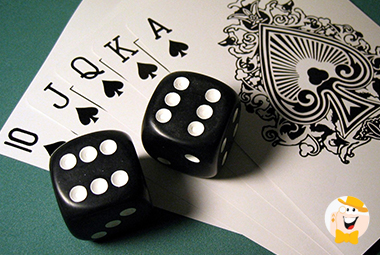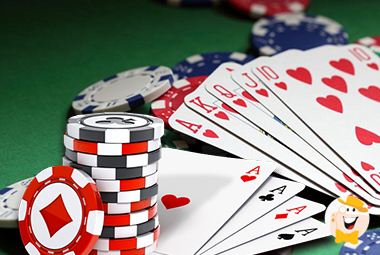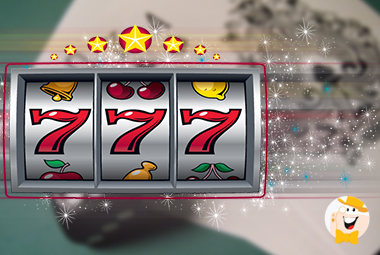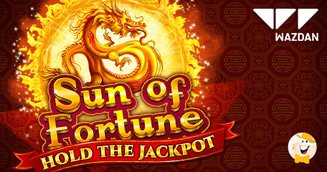
Can You Keep Going?
It can generally be assumed that gambling should not be considered a physically taxing pursuit, at least, other than those occasions upon which a person either stays up way too late or imbibes way too much during a trip to the casino. When it comes to recreational gambling, I have certainly done both of those things at one point or another. This editorial isn’t about that, though, this editorial is more geared to the sorts of things that I have had to endure, while playing at an advantage, in order to win.
Perhaps one of the most difficult, yet rarely mentioned, aspects of sitting down and playing a positive expectation machine or promotion is the fact that many of the plays are open-ended. What I mean by that is that certain plays, such as a play on a must-hit, will end at a finite point. A player can calculate how many total bets it could conceivably take to reach the must hit based on the meter move and the amount being bet.
For example, if there is a must-hit that must be hit by $500 and the meter sits at $490 with a meter move of $3.00 coin-in per penny, then one can simply conclude that there are potentially as many as 1,000 meter moves left and that the total amount of coin-in that could be played is $3,000 in coin in. In the event that an individual is betting $0.50/spin, the result is that the player may have to make as many as 6,000 spins in order to guarantee that the must-hit jackpot is secured. At that point, the player can estimate how many spins per hour the player will play (let’s say 600 on a certain machine) which means that the player could theoretically need to play for up to ten hours in order to guarantee the must hit goes off.
Generally speaking, many players consider it a worthy goal to play with as little variance as possible when going after a must-hit meaning, all other things being equal, that player will want to bet the least amount possible per spin. However, pragmatic considerations sometimes come into play, so a player might rather bet $1.00 per spin in order to be finished within 3,000 spins which, based on the player’s assumption on spins per hour, might take a maximum of five hours to complete. Other players still might consider five hours too much and choose to bet at the $1.50 level which would result in a maximum of 2,000 spins that would be completed in no more than three hours and twenty minutes.

Well-bankrolled players may care only about the advantage and are not particularly concerned with the variance, so they might be willing to bet the maximum on the machine which, for the purposes of this example, we’ll say is $3.00/spin. In that case, the player would only need make a maximum of 1,000 spins which means that the player would be finished in no more than one hour and forty minutes.
Of course, it can often be difficult to determine exactly how many spins a player will get in per hour as there are significant differences between one machine and the next. For one thing, machines that a player has the ability to, ‘Slam stop,’ as I like to call it, which means that by double-tapping the spin button the result is shown almost immediately, can be played in a much more expedient way than machines that do not enable slam stopping. Of course, at a rate of nearly one play per second, a player could theoretically get about 3,000 spins per hour in (not accounting for hitting bonus games) and that machine will finish up much faster.
Many plays on machines, however, are open-ended. What I mean by that is that there might be a positive Progressive that entails hitting a certain result on a slot machine, or perhaps a Royal Flush on video poker or 7/7 numbers on Keno. While all of these sorts of things have a probability that can either be readily known (such as keno or video poker) or guesstimated (as is usually the case with slot machines) the result is not guaranteed to happen within a certain amount of trials. Furthermore, regardless of the number of trials that have been made thus far, it is neither more or less likely to happen on the following play than it was on the several hundred or thousand plays before it.
This can be readily evidenced by the fact that, with most progressives, the desired result that makes the machine mathematically positive will have to have gone multiple, ‘Cycles,’ (a cycle simply means the probability of a result happening, if the probability of a result is 1 in 40,000 and it has gone the last 80,000 attempts without hitting, then it has, ‘Missed' the last two cycles) without hitting. That’s almost always true on all games that have a negative expectation base game. What that tells you, the player, is that the desired result has already gone several plays, and often several entire cycles, without happening, and for that reason, the machine is positive.
Despite that fact, a given machine may end up going that number of cycles more, or perhaps even more than that, without hitting. Alternatively, the desired result could come up on your very first play. In any event, the desired result showing up within a given number of trials is, by no means, a guarantee and a player can find oneself, ‘Stuck,’ for more than the amount that he or she is to be paid when the result finally does hit. To wit, if you have a Royal Flush progressive at $1,298.63 and that is sufficient to result in a mathematically positive machine, it is theoretically possible to end up down far more than that amount such that, if the desired Royal Flush hits, the player will only succeed in getting some of his money back.
Even more so than video poker, that is one of the aspects that can be eminently frustrating when it comes to slot machine advantage play. Slot games tend to be higher variance, as well as generally having a higher base house edge (lower base return to player) than video poker games which results in it being arguably easier to be down more on a slot than hitting the desired result will pay. Of course, slots are also different in the sense that, even if a player is stuck for more than the desired result will pay, that very same variance might result in hitting an amount that puts the player back on the path to profitability if the desired result hits, and perhaps, even results in the player being put back in a profitable position overall. When it comes to Video Poker, however, if you are stuck for more than the amount of the Royal Flush plus perhaps the second best paying hand, such as a straight flush on Jacks or Better, there is a greatly reduced likelihood of ever, ‘Making a comeback,’ such that one will achieve a profit.

In the types of situations in which a player ends up down a substantial sum without the desired result hitting, it takes a great deal of discipline in order to, ‘Stay in there,’ and keep going after the desired outcome. For one thing, assuming a progressive meter, the play is probably better than it was before the player sat down on both an overall and per play expectation basis. Secondly, there is also the question of value added. With most progressives, particularly with uncapped ones, a percentage of the advantage player’s bet (as it would with anyone else) is being added to the progressive. If the player gets up and walks away, then not only is that player leaving a positive play behind, but it could be argued, the player is directly leaving some of his own money (that would be returned to him upon hitting the desired result) behind.
There is a game out there that has a random bonus feature that allows the player to pick three treasure chests at any given time and, having successfully picked the one with the jackpot, the player will then be presented with four more chests with three of them containing the Minor Jackpot while one contains the Major Jackpot. These can be reasonably fun games when the player is able to slam-stop, but if not, unfortunately, this bonus game is usually paired with what might be the most boring slot base game in the history of the Universe.
These machines can reach a point where there are only three treasure chests left, and since the player gets to pick three treasure chests when the bonus is active, that means that the player will win either the Minor or Major Jackpot, essentially automatically, as a result of hitting the bonus game. I found myself on one such machine at just past one in the morning one night a few weeks ago, but the problem was I was leaving Atlantic City the next day and had nine hours in a car in front of me.
I ended up down as much as $50 on the machine and then eventually had a good hit and ended up ahead slightly over $60. At this point, I had a little over $120 in credits and had put a total of $60 cash into the machine. I considered quitting as I had more than doubled my money, even though I would be leaving a good play behind, but after looking at the time I decided to continue a little bit. I played for nearly another hour until it was just short of four o’ clock in the morning. Both tired and somewhat disgusted, it occurred to me that this was the first time ever, in my experience, that a machine of this nature had gone so long without hitting. I knew I had to catch a few hours to be good to drive, so naturally, I cashed out my ticket (which was now $60 and change) and left the casino.
Normally, barring any other engagements, I would have stayed all night and into the next day to hit that result if I did not have any other engagements. Aside from other engagements, I suppose one other consideration might be if there was the potential for a better value play anywhere at that time. The point, however, is that a particular result can go much longer than expected without hitting and a player might be in for a much longer play than they bargained for. The longer the odds, of course, the less frequently the desired result occurs and the longer that the play may take.
For results that have a known probability or one that can be guesstimated to a close degree, a simple Binomial Distribution will tell a player what the likelihood is of going x plays without the desired result hitting. That can be a useful tool for estimating (based on the number of plays per hour one can get) how long a desired result might take to hit. It is also an important thing to know for some players because, while it does not change your value on any individual spin or hand, a player who may not be extremely well-bankrolled that may have other engagements must often decide whether or not going after a particular play is worth it if he/she is unlikely to hit the desired result in the amount of time they have available to them.

Conclusion:
The takeaway from all of this should be that very few machine plays can be strictly determined to have a maximum amount of time that they will take and the ones that can’t will have expected amounts of time just like a given result is expected to hit in a given number of attempts. The player can use this information going in to determine, based on the number of plays he is likely to get in the time he has available, whether or not he wants to go for the play. While a player who has no other engagements will often remain until the result hits, unless there is a better play available elsewhere, many advantage players do, in fact, have things they must do with their lives outside of the casinos.
For example, if I saw a machine with a Royal Flush (at a denomination within my means) progressive that was positive, I would certainly play it, but at 800 hands per hour, I know that I probably don’t have it in me (even if I had the time theoretically available to me) to sit there for fifty hours until the first Royal Flush cycle has come and gone. Imagine that! Fifty hours and the player is no more likely to catch the royal on the next hand than the player was on the immediate hand prior or any of the hands before that!
Of course, that’s just if the player goes one cycle without it hitting. A player capable of 800 hands per hour that goes three cycles without it hitting will have played 150 hours, I’m sorry, but I refuse to believe that anyone out there can play effectively for what amounts to almost a solid week.
It can often be a positive trait to have the will to win, and it often is when it comes to a player having the wherewithal not to get scared and quit just because he is down when the value of a particular play (assuming it is positive) is either unchanged or improved. In other cases, though, an advantage player should follow the type of advice that is given to other players when going after a result that is not likely to hit within a reasonable timeframe, “Leave when you aren’t having fun anymore.”
*There are exceptions to this advice, though, some promotions are so lucrative that they should absolutely be played during the entire duration of the promotion as long as the player is capable of doing it.










jumboscampi 7 years ago
7 years ago
I just want to say that when it comes to playing online casino games, I DEFINITELY have to will to win. We wouldn't be playing them if we didn't would we? I love to take a withdrawal out of a casino ESPECIALLY when they have ticked me off by making me lose a bunch of my money! LOL But seriously, there is no better...
I just want to say that when it comes to playing online casino games, I DEFINITELY have to will to win. We wouldn't be playing them if we didn't would we? I love to take a withdrawal out of a casino ESPECIALLY when they have ticked me off by making me lose a bunch of my money! LOL But seriously, there is no better feeling than making a deposit, or even better, not making a deposit but rather get a free bonus, and then taking the money out and into your bank account. Right? Good luck out there folks!!
Show morePlease enter your comment.
Your comment is added.